Picture it: Sicily, 1906, a ragtag bunch of cars and a dusty and dangerous path to glory.
The race is the brainchild of Vincenzo Florio, Jr., the scion of a family made wealthy by fishing, pottery, and winemaking. No flaneur, Florio embarked on his life’s work as the late Gilded Age world around him grew more mechanical and more chaotic as it slid toward industrialized war. Florio embraced the automobile, the signature technology of his era. Motorsports had already attracted a following when he pictured a race that would spiral through the mountains of Sicily.
What it would become was legend. From its first spin of wheels on dusty Sicilian trails in the spring of 1906, Florio’s race traced a dangerous path around the island. Drivers sprinted from the start, spaced two minutes apart, roaring past pack animals and carts, sliding perilously close to loosely thrown bales of hay—only later, slim guardrails—through a course as long as 92 miles of slicing hairpins and sweeping grades at then-outrageous speeds, up and around mountains, showering in dazzling sunshine or cutting through dense fog.
More than a century later, the echoes of Florio’s race still rebound off the steep mountainsides of Sicily, where the Subaru WRX TR and BRZ tS get to try on the checkered flag for size. These four- and two-door “track-ready” and “tuned by STI” editions are new for 2024. Floated by ferry from Genoa, they’re here not here to repeat the past. They’re here to skitter across barely maintained pavement and dodge drizzle while they show off their higher state of tune.
With a good co-driver on the route map and the heater turned up, we start near the decrepit Floriopoli pits where for decades the Targa Florio chase was set into motion. It’s dreary and foggy, but the WRX TR and BRZ tS are highly attuned to dealing with all kinds of roads—even when the roads barely exist.
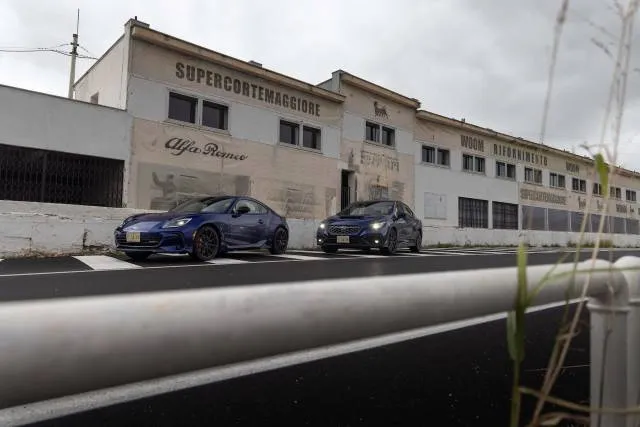 Subaru Targa Florio ’23 (Subaru WRX TR and BRZ tS)
Subaru Targa Florio ’23 (Subaru WRX TR and BRZ tS)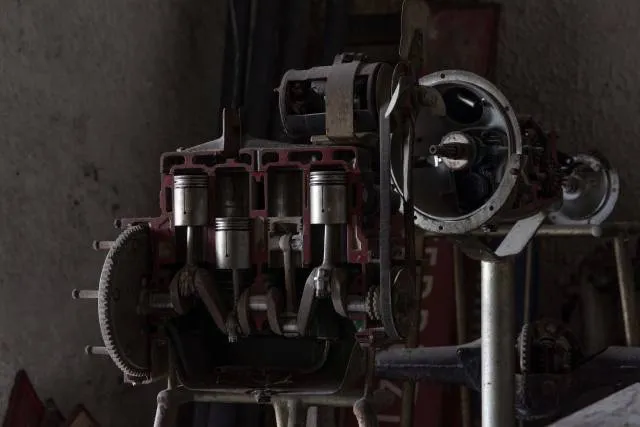 Subaru Targa Florio ’23 (Subaru WRX TR and BRZ tS)
Subaru Targa Florio ’23 (Subaru WRX TR and BRZ tS)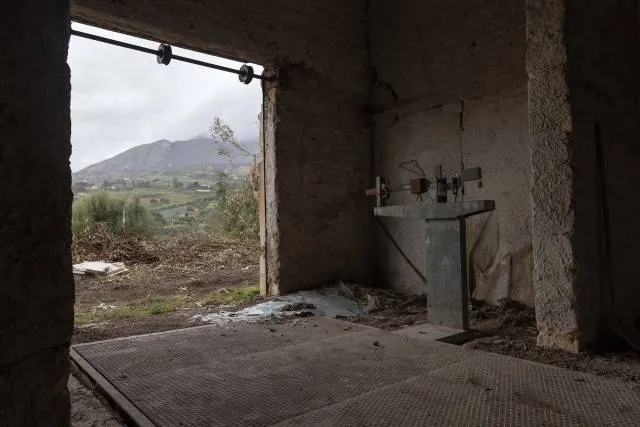 Subaru Targa Florio ’23 (Subaru WRX TR and BRZ tS)
Subaru Targa Florio ’23 (Subaru WRX TR and BRZ tS)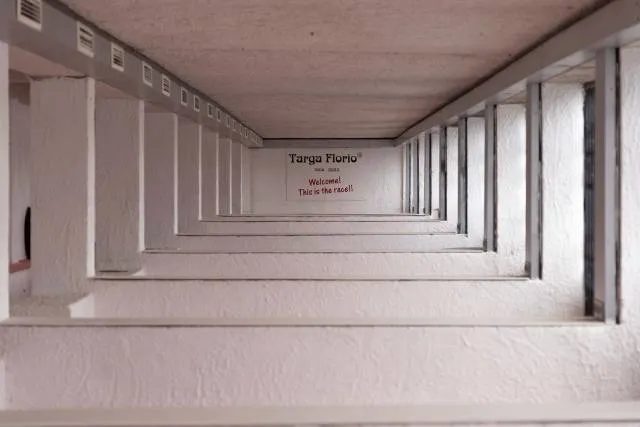 Subaru Targa Florio ’23 (Subaru WRX TR and BRZ tS)
Subaru Targa Florio ’23 (Subaru WRX TR and BRZ tS)Targa Florio: An ungovernable race
So long, in such poor condition, so taxing of drivers and cars, the Targa Florio was an ungovernable race, and that wildness would eventually bring about its demise. But in its 70-plus years of barely controlled speed, the Targa Florio turned Sicily’s stunning mountainscapes and rollercoaster valleys into the ultimate test of machine and people. It bore witness that, somehow, modernity could conquer even Sicily.
The race would eventually consume three different routes: the 72-km Piccolo, the 108-km Medio, and the earliest rendition, the 148-km Grande. The first winner, Alessandro Cagno, took more than nine and a half hours to run three laps of the long course at an average speed of 30 mph.
The course of the springtime race changed erratically through the years. Mussolini commanded the construction of a road between Caltavuturo and Collesano in 1932, after Florio asked that it be built. So skilled was race legend Tazio Nuvolari—nuvola is “cloud” in Italian—that he won the Targa Florio in the year before that road was built, and then won in the year of its completion, both times in an Alfa 8C.
No race had the extremes of the Targa Florio. Even in its shortest form drivers would slew through more than 800 turns during a single lap. Pavement only replaced the tamped dirt roads after the war. Impossible to learn, between the distance and the frequent course shifts, the Targa Florio depended on quick-witted drivers with cars that wouldn’t break down. It would confound even the most skilled drivers. Ferrari—Enzo—won it in 1920 in an Alfa, but Fangio and Ascari never would, even as the route grew shorter and shorter.
By the 1970s it was down to 45 miles in a lap, and the supercars of the day picked off nearly 80-mph laps. Drivers prepped by threading through normal traffic in the days before the race: it was the “totally insane” norm, according to challenger Helmut Marko. There never were enough marshals, the road surfaces never could be groomed like those on the Grand Prix circuit, and spectators sat alarmingly close to the route.
Drivers were in extreme peril. Any crash on a remote stretch of the course could leave the injured waiting until medical teams could arrive, as in 1971 when Brian Redman’s early crash left him in a hospital in Cefalù—his teammates unaware of his second-degree burns—to be joined by Alain de Cadenet, who had been struck by parts from a car ahead of him.
A 1977 accident that killed two fans and injured another five meant the end of the classic Targa Florio. It resumed in 1978, converted to a rally on a shorter and safer route, its extreme past extinguished.
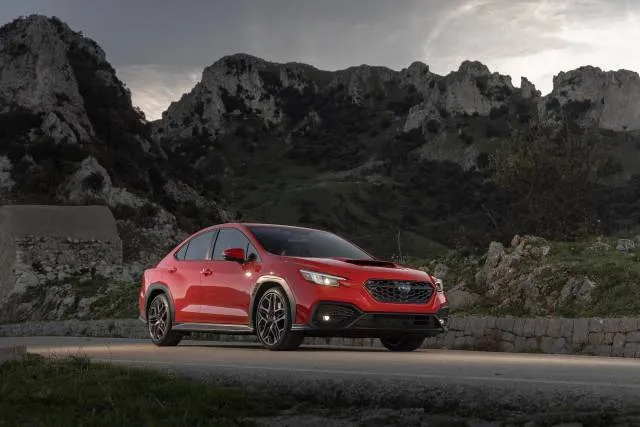 2024 Subaru WRX TR test drive review, Sicily
2024 Subaru WRX TR test drive review, Sicily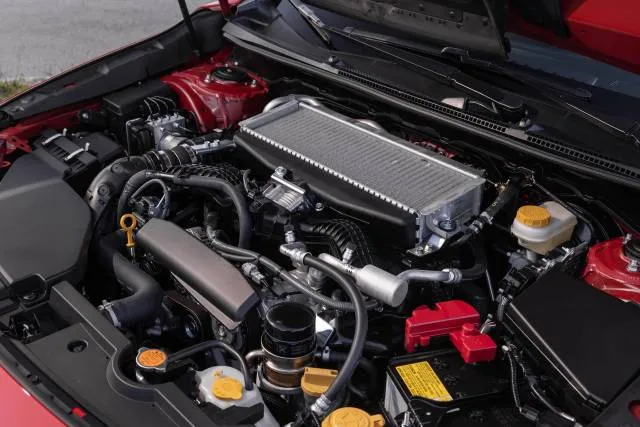 2024 Subaru WRX TR test drive review, Sicily
2024 Subaru WRX TR test drive review, Sicily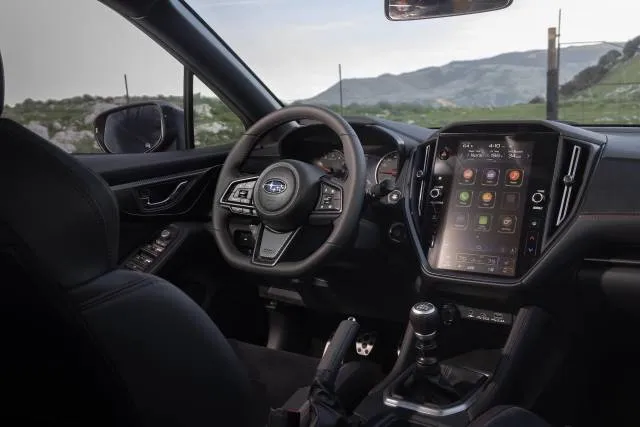 2024 Subaru WRX TR test drive review, Sicily
2024 Subaru WRX TR test drive review, Sicily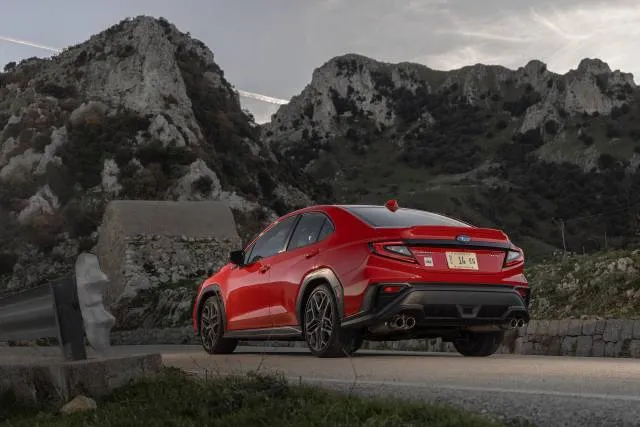 2024 Subaru WRX TR test drive review, Sicily
2024 Subaru WRX TR test drive review, SicilySubaru WRX TR: hear the rallying cry
That past lives on as we peel off into the hillsides, my co-pilot and I behind the wheel of a red $42,775 Subaru WRX TR. It’s raining now and the burnt sienna mountains have gone into hiding behind the clouds. The Sicilian sun of the day before has disappeared. Only the red and blue cars in our caravan stab through the gloam. Fa schifo.
It’s OK if you’re in the WRX TR, though. TR originally stood for “track ready—the low-content versions for people who wanted to dump the radio and swap out wheels. This year, it still stands for the most track-ready version though considerable creature comforts have worked their way into the mix.
Subaru revealed the WRX TR earlier this year with its sport-tuned suspension and its carryover powertrain—a turbo 2.4-liter flat-4 whistling out 271 hp and 258 lb-ft of torque from 2,000 to 5,200 rpm. It’ll gun to 60 mph in about five seconds, since it still weighs about 3,340 pounds.
The WRX TR only comes with a 6-speed manual that sends power to be split 50:50 by a viscous coupling, with torque vectoring handled by anti-lock braking across the front end. It’s a delight to snick away through the gears: the TR has long but light shift throws, which I exercise frequently as merciless Fiat Panda drivers stay in hot pursuit as we nibble corners gingerly.
It’s more than misty as we slip through the esses that carve into the millennia-old ridges of Sicily. An earthquake heaven, it’s a driving heaven too—when it’s dry. The roads are alive with ridges, ripples, Fiat-sized chunks simply gone or sunken like a topographical map of the land before the road was built on it. The road rash checks the WRX TR into the boards like amateur league hockey players with unresolved work issues. Thank those stiffer springs and damper rates for the way the TR softens up when it’s not being pummeled like Jake LaMotta, and sueded Recaros for keeping me stuck in place when it is.
Pressing deeply into broken, wet corners only rears understeer’s ugly head. The WRX TR gets 19-inch 245/35-size Bridgestone Potenza S007 tires, which in drier conditions would be up to their grippy task. But today we’re forced to rely more on the TR’s Brembo6-piston front calipers and 13.4 inch discs (up an inch from the non-TR), and 2-piston rear calipers with 12.8-inch discs (up 1.4 inches). When it slides toward the side of the road, not even great pedal modulation helps.
It’s just pissing rain now and I shiver uncontrollably. What must it have felt like for those real Targa Florio drivers? I get a taste of it when I push the WRX wide through one corner and it takes a half-step into the marbles as the surface greases up from the mist. Good thing those thick tires ride proud over the pricey rims. I’d hate to draw any more attention to my prosciutto-fisted driving. (It’s a little better than ham.)
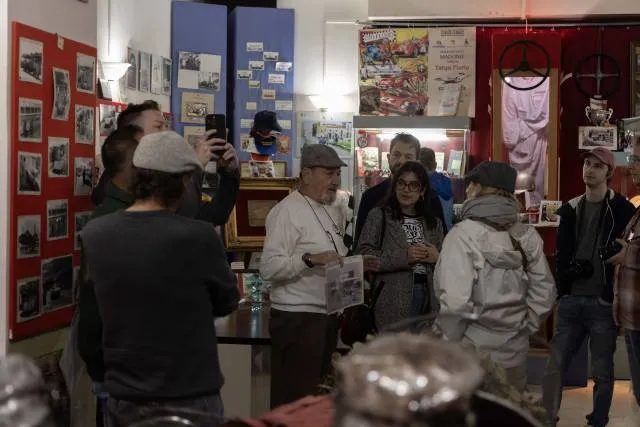 Subaru Targa Florio ’23 (Subaru WRX TR and BRZ tS)
Subaru Targa Florio ’23 (Subaru WRX TR and BRZ tS)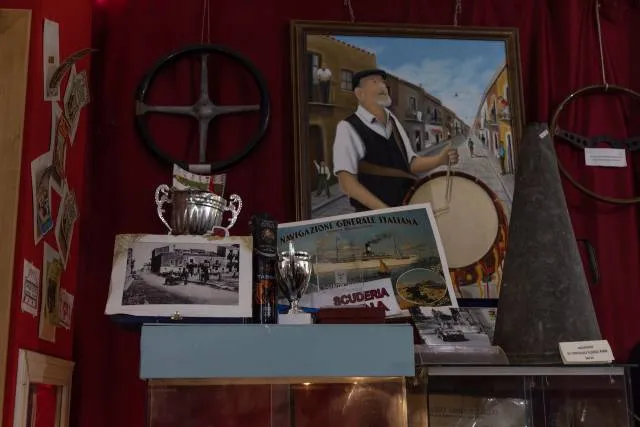 Subaru Targa Florio ’23 (Subaru WRX TR and BRZ tS)
Subaru Targa Florio ’23 (Subaru WRX TR and BRZ tS)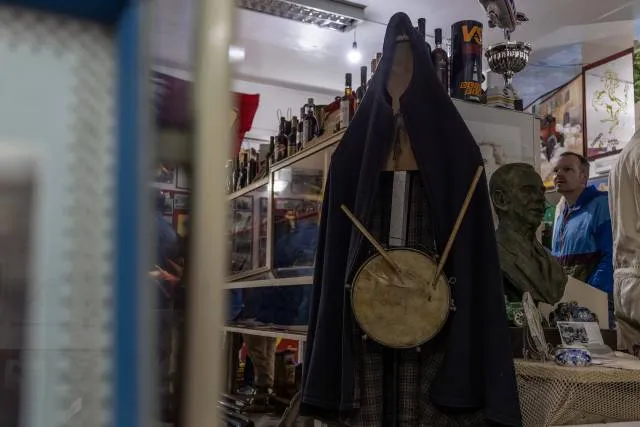 Subaru Targa Florio ’23 (Subaru WRX TR and BRZ tS)
Subaru Targa Florio ’23 (Subaru WRX TR and BRZ tS)At the Museo Vincenzo Florio, a history lesson
A few dozen kilometers shy of exhaustion, we break for a moss-glazed parking lot in the middle of the town of Cerda. There, in a discreet but jammed-full series of rooms under the Caffe Miro’ di Tedeschi Vincenza, Antonino Catanzaro has curated the Museo Vincenzo Florio. It takes up the basement of an old hotel, in what was once an Alfa Romeo team garage.
From 1960 to 1977, Catanzaro saw it all as an observer and a track guide. He donned a black cape and a drum that he beat to warn people of the oncoming racers. The outfit could have doubled as a town crier’s garb when warning of Black Death. Above the visual din of the Museo collection hangs a portrait of him drumming in the Florio’s traffic, painted in the style of Leonardo’s master, Piero della Francesca.
Through a translator he tells us about the artifacts he plucked from the side of the road, and from the mail—fabulous illustrations, worn and broken car parts, old driving suits displayed on blank-eyed mannequins, dead-eyed guardians of Florio’s history.
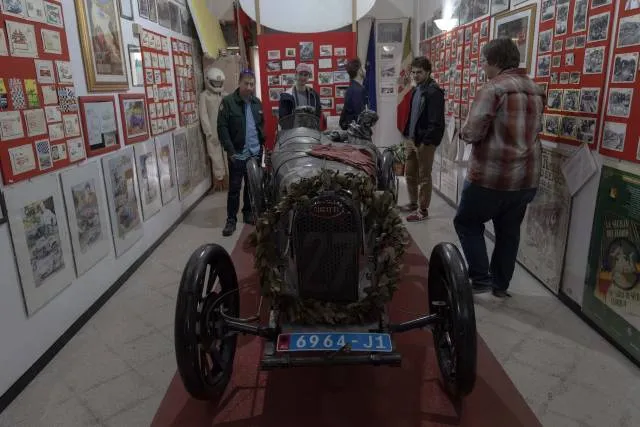 Subaru Targa Florio ’23 (Subaru WRX TR and BRZ tS)
Subaru Targa Florio ’23 (Subaru WRX TR and BRZ tS)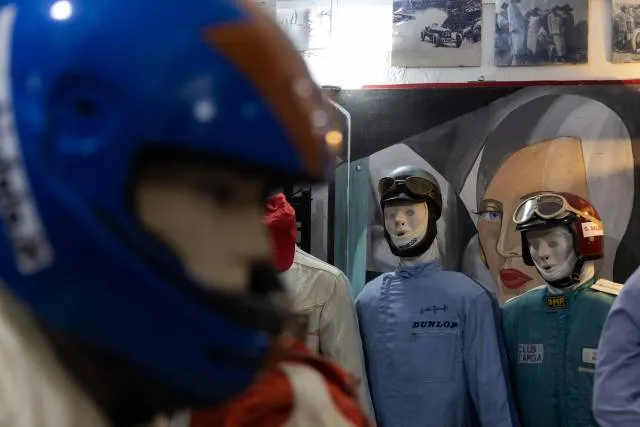 Subaru Targa Florio ’23 (Subaru WRX TR and BRZ tS)
Subaru Targa Florio ’23 (Subaru WRX TR and BRZ tS)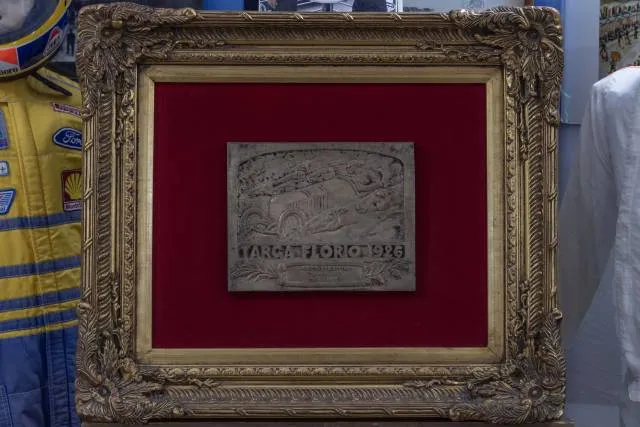 Subaru Targa Florio ’23 (Subaru WRX TR and BRZ tS)
Subaru Targa Florio ’23 (Subaru WRX TR and BRZ tS)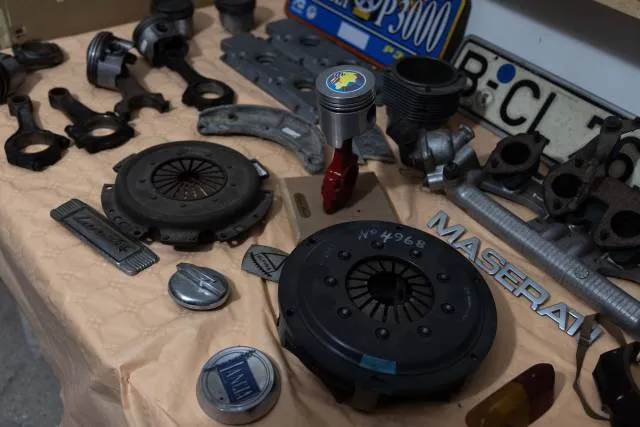 Subaru Targa Florio ’23 (Subaru WRX TR and BRZ tS)
Subaru Targa Florio ’23 (Subaru WRX TR and BRZ tS)Catanzaro’s devotion to the Targa Florio borders on the religious.One of the most prized artifacts is a 1926 plaque made for Bugatti to honor its 1-2-3 sweep. The original “targa,” or “plate” in Italian—the word loaned to Porsche for its Targa-paneled cars. To get to it, you must step around an homage sculpture of the Bugatti, made of iron by a local artist, that dominates the room.
His collection spans the Targa’s history, through the era when it became too dangerous even for Sicily, and turned into the rally race. Subaru ran its Impreza WRC car and won it in 1995 and 1999, the year that Catanzaro opened the museum.
You can see some of the Targa Florio from the perspective of a fan like Catanzaro in “A Sicilian Dream,” the docu-drama released a few years ago (stream it: de Cadenet narrates in part). Or you can make an appointment to meet him and stumble through a conversation in college-level Italian amid the museum’s horde, as we did at the halfway point of our journey into the past.
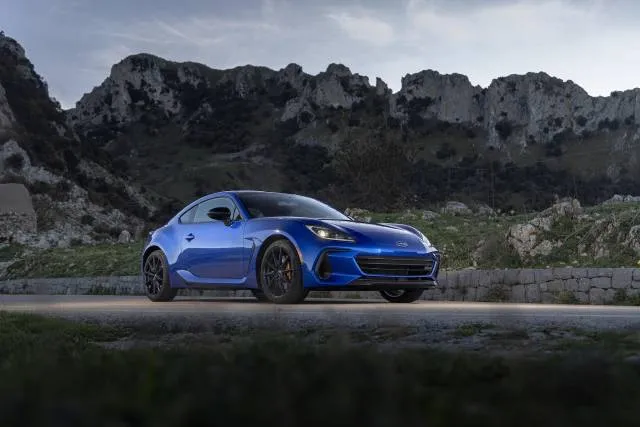 2024 Subaru BRZ tS test drive, Sicily
2024 Subaru BRZ tS test drive, Sicily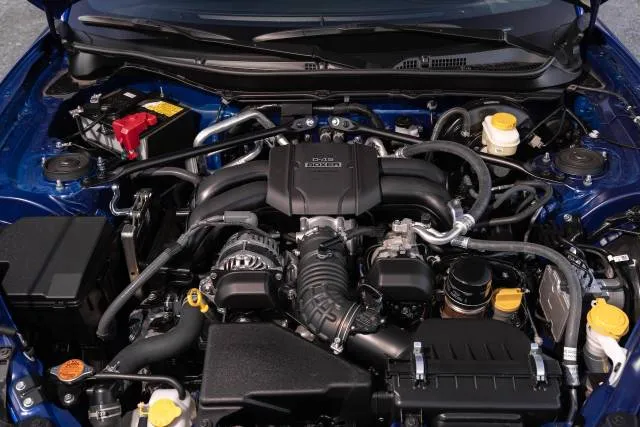 2024 Subaru BRZ tS test drive, Sicily
2024 Subaru BRZ tS test drive, Sicily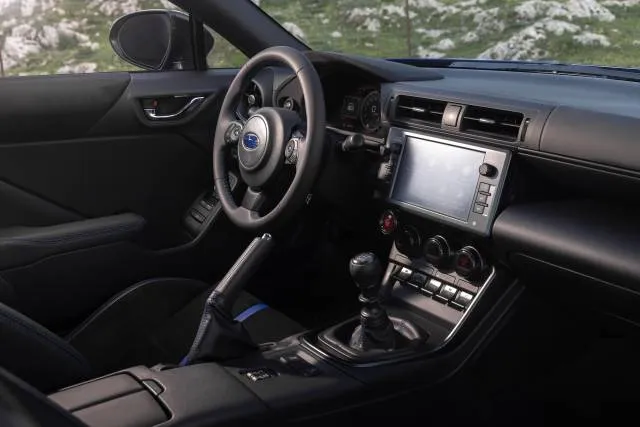 2024 Subaru BRZ tS test drive, Sicily
2024 Subaru BRZ tS test drive, Sicily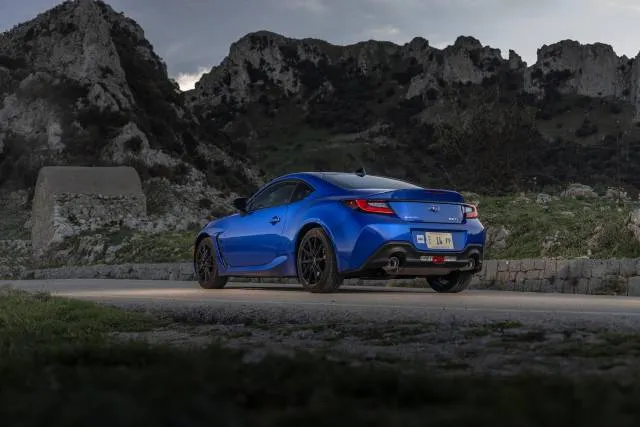 2024 Subaru BRZ tS test drive, Sicily
2024 Subaru BRZ tS test drive, SicilyGetting greasy with the Subaru BRZ tS
Sicily and Sicilians could charm the pants off Porky Pig, I decide, after a stop for lunch at Osteria Nicuzza. While we down rigatoni in brown butter with potato, owner Roberto leans over my table to grab a cabinet-card photo. In it, his dapper grandfather Luigi sits while Roberto tells how he left Sicily for Newark, New Jersey, in 1905—and how the family came back to Sicily a generation ago.
From that far waypoint on our map, I swap into the BRZ tS. It’s still Subaru’s entry-level sports car, though this STI-tuned edition costs $36,465. Since it was new a decade ago, the BRZ has done things differently from all other Subarus. It drives a flat-4, sure, but does so through the rear wheels only. Its 228 hp churns toward the rear through a 6-speed manual here, and given the car weighs a trim 2,846 pounds, it scoots to 60 mph in about six seconds.
This year all of the 2024 Subaru BRZ lineup gets modern safety technology including automatic emergency braking, even the manual-equipped cars, which simply stall when avoiding accidents. But only the BRZ tS gets a revamped suspension with front Hitachi dampers, Brembo brakes, and 18-inch wheels with 215/40 R18 85Y Michelin Pilot Sport 4 tires. The dual-path dampers let more oil flow through them for better ride quality, while the Brembo brakes obviously perform better with their gold finish—er, with about an inch more in diameter versus the stock car.
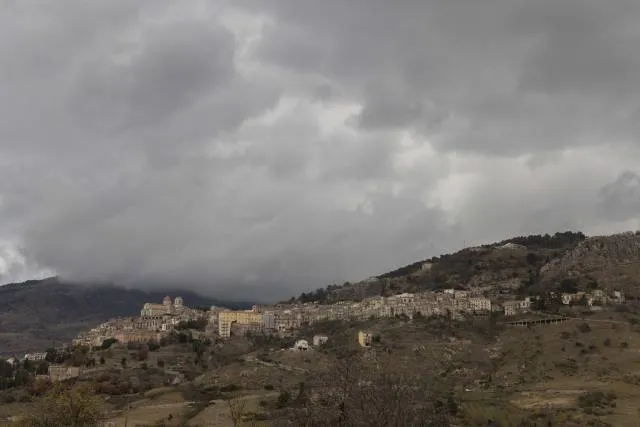 Subaru Targa Florio ’23 (Subaru WRX TR and BRZ tS)
Subaru Targa Florio ’23 (Subaru WRX TR and BRZ tS)
We trundle through towns with inches-wide sidewalks and open garage doors with mechanics who dangle unlit cigarettes while they scan the Subarus as they samba through town. The rain relents briefly so we can dial in speed to see how the BRZ handles the tS upgrades.
It’s better because it gives up nothing good from lesser BRZs. The ride seems softened, but given the road quality, it’s a shrug-emoji day all around. The brakes click in with confidence, though, and the BRZ’s stock 6-speed shifter coordinates with them famously.
In any other circumstance, the bigger and stickier tires would make themselves known—on the track we’ve noted how the uprated BRZ grips longer and better, until it doesn’t—but within a few kilometers of our final stop the rain starts again, wetting everything back to a glossy gray-black.
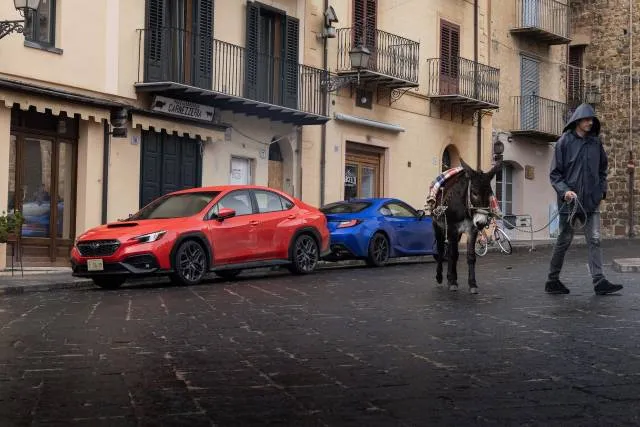 Subaru Targa Florio ’23 (Subaru WRX TR and BRZ tS)
Subaru Targa Florio ’23 (Subaru WRX TR and BRZ tS)
Chasing the Targa Florio ghosts
Our BRZ tS glides into Castelbuono, where the town square’s fragrant with the smell of the elastic, fruit-studded panettone from the Fiasconaro bakery, and where a busful of schoolchildren on a day trip crowd the doors for samples while we crowd the bar for an off-hours cappuccino. In Rome that’d be a cultural transgression of the first order but in Sicily, they shrug it off with a smile.
It’s gray and threatening again as we pull north out of town. The last fifty kilometers bring more heaves and minor skids among the myriad of donkeys, potholes, goats, and Fiats. The refrain repeats itself less often as we get into the more remote stretches and their more distantly spaced villages.
My Targa Florio revival ends in the dark, more than a decade since the last version met its close, nearly a half-century since the last of the original and almost 125 years since it first buzzed around the valleys of Sicily. The fog has begun to roll in again, and rain dampens the pomp of parking an unscarred car back with the valet. I can breathe a sigh of relief. I’ve chased the Cloud himself and come through without a nick.
The BRZ tS and the WRX TR go to heroic lengths to protect drivers, but they don’t excise the silly thrills of discovering exactly where the rubber no longer meets the road. During this revival no records were broken, and no history was made. I only traveled through it. Still, I’m certain the ghost of Vincenzo Florio tipped his hat in an approving nod.
Subaru flew me to Sicily and fed me an average of one cannolo every three hours so that I could write this story and—miracle of miracles—still fit in an airline seat.
Related Articles
- 2024 Subaru WRX gains price hike, new TR grade
- Review: 2024 Acura Integra Type S makes the Civic Type R stealth
- Review: 2024 Porsche 911 S/T strips down for driving engagement
- Radford adds Type 62-2 track car based on Pikes Peak special
- Everrati honors 964 RSR with latest 911 EV conversion


















